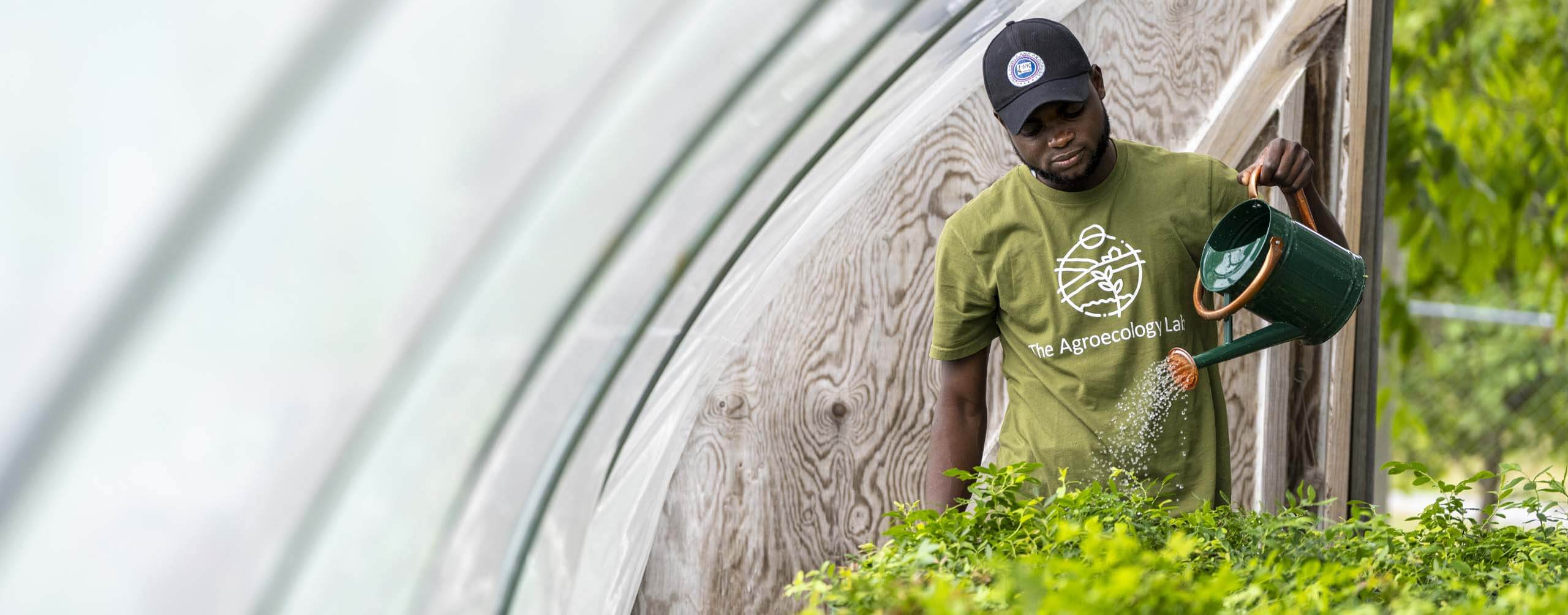
Sustainable Food Systems
College of Earth, Life, and Health Sciences
The B.S. in Sustainable Food Systems explores the interconnected activities from production to consumption of food or generation of food waste. The program has five concentrations: Climate Change and Food Systems, Food Processing and Innovation, Justice, Equity, and Community Development, Leadership and Management, and Plant and Animal Production Systems.
The program offers five concentrations and the opportunity to customize your own concentration:
Climate Change and Food Systems focuses on how climate change affects and is affected by food systems, and how we can both use agriculture to mitigate environmental change while simultaneously adapting to it.
Food Processing and Innovation encompasses the technical aspects of food science, while addressing the policy and cultural environments in which food science is practiced.
Justice, Equity, and Community Development allows students to become well versed in elements of policy, economics, and culture that lead to unequal and unjust social outcomes. Students will develop the skills they need to change these outcomes in their communities and future organizations.
Leadership and Management allows students to become knowledgeable in the ethics of leadership and management, and learn how to apply these ethical standards to business and community development as they pertain to food systems.
Plant and Animal Production Systems enables students to learn about integrated crop and livestock systems at local, regional, national, and global scales. Critical analysis of these agricultural systems will instruct students about the most promising methods to decrease the ecological harm while contributing to vibrant food production.
Individualized Concentration in Sustainable Food Systems permits students to develop their own individualized concentration in Sustainable Food Systems. Working with a faculty mentor, the student will be able to choose within the broad selection of courses available within the degree.
After the completion of the Sustainable Food Systems degree at the University of Maine, students can look forward to careers in:
Food policy within organizations, such as the U.S. Department of Agriculture (USDA), the Food and Drug Administration (FDA), or the Department of Health and Human Services (DHHS);
Improving community food security within organizations, such as the Special Supplemental Nutrition Program for Women, Infants, and Children (WIC), the National School Lunch Program, or the Supplemental Nutrition Assistance Program (SNAP);
Farm management, food waste management, and food distribution as a farm-owner, farm manager, or in the employment of a wide range of food businesses.
Eileen Molloy
Undergraduate Program Coordinator
111 Hitchner Hall
207.581.3121 | eileen.molloy@maine.edu
Sustainable Food Systems
College of Earth, Life, and Health Sciences
210 Rogers Hall
207.581.2947 | um.foodandagriculture@maine.edu
